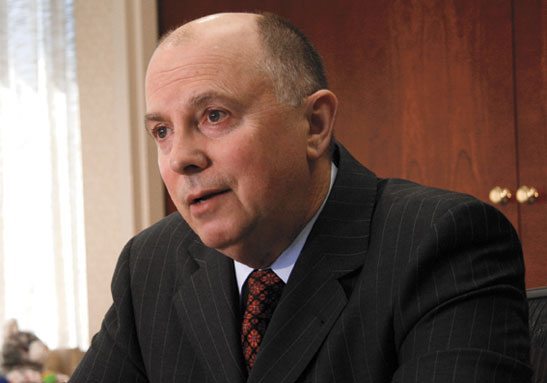Richard L. Boals
President and CEO
Blue Cross Blue Shield of Arizona
What are some of the major trends in the health insurance industry?
In health, I think there is a shift toward an increased responsibility toward the individual. We’re asking people to take accountability for themselves. We’re giving them information that they can use to monitor their health status, but we also would hope that they would lose weight, they would quit smoking, they would wear their seatbelt and do the things that are sort of common sense, but can make their life much more enjoyable and in the net, save a lot of money.
In the business world in terms of health insurance, how is that industry looking right now in Arizona?
It’s actually, I think, very healthy. We, like every other industry, are starting to feel the pain of companies who are laying-off employees. So, we’re seeing a little bit of shrinkage within the general size of our group, but we’re growing at about 7 to 8 percent a year, so we feel very good about where we’ll be when we come out the other side of this economic downslide.
How has the recession affected the health care industry in general and health insurers in particular?
There are a couple of things that are happening. In the hospitals, they are starting to see fewer elective surgeries and to some extent that is the bread and butter of a hospital, and if people are holding off getting things done, that pulls down on their revenues. They are also seeing more cost-shifting from the government — or we’re seeing the cost-shifting from the government — and as Medicare and Medicaid pay less and less, I think it’s difficult for hospitals to make a bottom line.
What role is Blue Cross Blue Shield of Arizona taking in the debate over health care reform?
We’re trying to take a very active role both locally and in Washington. We believe that everybody ought to be covered. We’re a little perplexed that of the 40 million or so uninsured that about a quarter of them already qualify for some state or federal program and simply have not been enrolled. So as we talk about expanding the government’s role, I think we need to expand their accountability for getting people enrolled. But we believe that everybody should have access to good coverage. We believe that the government should not form a competing model, to not promote us but to try to bring us down. Beyond that, I think we’ll see what comes of it. I really believe that the government has an extraordinary opportunity here to inject energy into the health care system. My fear is that as they try to ratchet costs down and save money, they’re going to discourage innovations, and a few years from now we are going to be very disappointed that the supply of physicians and nurses and new technologies is going to be less than it is today.
BCBS of Arizona is working with the Arizona Healthcare and Hospital Association and the Arizona Chamber Foundation on what has been called “the hidden health care tax” in the state. How and why did Blue Cross Blue Shield become involved in this issue?
We’ve been interested in this issue for a long, long time. We were happy to see that others were beginning to recognize that this is a serious problem. About 15 percent of our premium is a result of a government program not paying their fair share. As the hospitals and doctors figure out that they can only push so much to the insurance companies or to the private individuals, they have to speak up and say it’s time for the government to start paying a more realistic amount for the care they are providing to their accountabilities, the elderly and the indigent.
What advice do you have for a C-level job candidate on how they can show either that board of directors or that panel they’re interviewing with that they are somebody who can successfully lead a change in a business?
I think it gets down to two things. One, it’s about the customer — you always have to have them in mind. And it’s about the people you hire to support you. Being in a C suite assumes that you are not doing the physical work, that you’ve hired a team of talented and dedicated people who are going to make you look good, and over the years I have been very fortunate; people have made me look good.
-
Vital Stats
- Joined BCBSAZ in 1971
- Appointed CEO in April 2003
- Board member for BCBSAZ, the Blue Cross and Blue Shield Association and TriWest Healthcare Alliance
- Board member for Greater Phoenix Leadership, the Translational Genomics Research Institute and the ASU W.P. Carey School of Business Center for Services Leadership
- Won the ASU Alumni Leadership Award and the American Jewish Committee’s National Human Relations and Centennial Leadership Awards
- Bachelor’s degree in accounting from Arizona State University; completed executive development courses at Duke University, the University of California, Harvard University and the University of Michigan




